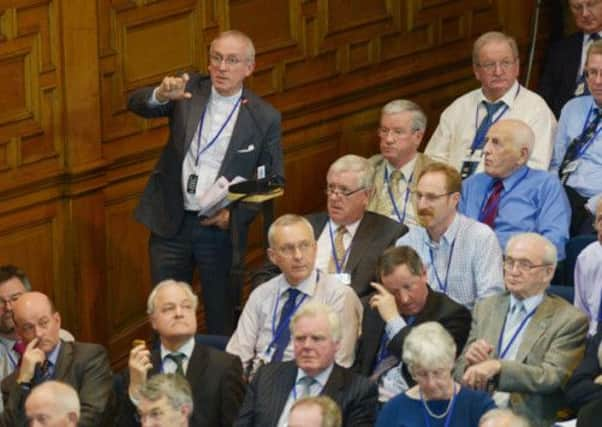Analysis: Small but significant step for Kirk


Given the centuries by which ecclesiastical history measures itself, however, the General Assembly’s decision to allow individual congregations to depart from its traditional closed door towards partnered gay and lesbian people in ministry looks like a giant leap forward.
This contrast tells you all you need to know about how tough it is for a historic institution to remain faithful to its inheritance while negotiating a fresh place in the fast-paced modern world.
Advertisement
Hide AdAdvertisement
Hide AdIn theory, yesterday’s “deliverance” – or resolution – squares the circle by allowing those who oppose change to say the official position of the Kirk remains theirs, while permitting local variation according to conscience. But whatever conservatives claim, this vote shows that the drift towards accepting gay people in the Kirk is continuing.
Indeed, while seeking pastoral sensitivity towards their opponents, the advocates of change believe that full inclusion is now inevitable.
Nevertheless, it will not happen instantly.
The next year will be in limbo.
At the 2014 General Assembly, a measure to enact this week’s deliverance within Church law will be voted on.
If passed, it will need to be approved by a majority of presbyteries.
So, further pitfalls remain possible.
But it will be exceedingly difficult for the Kirk to turn back on what is has now done, which is to recognise that partnered homosexual people may have a legitimate divine calling to ministry.
Meanwhile, the longer this reform takes, the more painful and damaging it is for a Church that still aspires to a central role in the life of a nation contemplating its own future.
Convincing people it has a message of both relevance and abiding importance is central to the Kirk’s mission.
Further introspection and dissention is as harmful to the prospects of a religious body as it is to a political party.
Advertisement
Hide AdAdvertisement
Hide AdStories of growth and vitality are what the General Assembly wants heard.
But that requires a public perception of pulling together.
Unity is the commodity that Kirk people are keen to speak of. But the institution they are part of still struggles to manifest it.
• Simon Barrow is co-director of Ekklesia, the religion and society think tank.